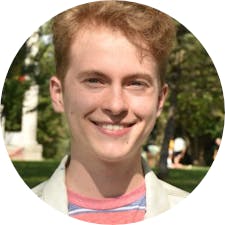The U.S. Census Bureau will conduct the 2020 Census in the coming months, a decennial count of every person currently residing in the United States. Households throughout the country will receive mail from the federal government beginning March 12 containing information on how to complete the census.
Residents are recorded in the census according to where they live as of April 1, the day of the census, meaning Middlebury students who are on campus this spring count as Vermont residents and should not be included on their families’ census questionnaires. Students can expect an email in the coming weeks with instructions on how to do the census.
The census will be offered online this year for the first time ever. Previously, it was only conducted via questionnaires sent to households and mailed back to the government. Census enumerators would make follow-up visits to residences that did not submit filled-out questionnaires.
The Census Bureau approached the town last spring about forming a Complete Count Committee. According to Chris English, the assistant town manager of Middlebury and chair of the Middlebury/Addison Complete Count Committee, the role of a Complete Count Committee is “ to conduct public outreach — especially to vulnerable communities that often don’t self-respond to the census — regarding the importance of the census and what getting an accurate count of the population means to Vermonters.”
According to English, people experiencing homelessness or lacking a permanent address, households with non-traditional or extended family structures, migrant workers, and people living in remote areas are typically considered “hard-to-count” communities and are the focus of the town’s committee.
Ashley Laux, program director for the Center for Community Engagement, and Kady Shea, assistant director of residential life for housing operations, serve on the Complete Count Committee as representatives from Middlebury College.
Students living off-campus are the focus of the college’s census outreach, according to Laux, because they will be receiving questionnaires directly mailed to their addresses and are responsible for completing the forms as households. Census enumerators will visit students who do not fill out the census form but choose to do the census in person. Middlebury students who are currently studying abroad will not be counted in the census.
Counting students within the college will differ from the general census process. Many students will be counted as part of group quarters enumeration, a classification that also includes hospitals, nursing homes, correctional facilities and other communal living spaces. In the college, residential life staff serve as the administrative contacts for the Census Bureau and will complete this part of the process for students.
Census data is necessary for the state and federal government to allocate funding to communities and track population changes which affect representation in Congress. Middlebury students are counted in Vermont because they are often beneficiaries of federally funded services such as transportation and health care.
“I think for me, building understanding and participation in a process that only happens once every ten years is the biggest challenge,” Laux said. “This is one of the largest peacetime mobilizations that the U.S. government does, so we’re not wanting to barrage students and faculty and staff with information. But we do want people to be informed about the process that has real-world impacts on funding and resources allocated to Vermont.”
Sociology Professor Matt Lawrence a class on the census over J-Term. The class covered the history of the census, its impact, recent controversies and the use of census data for research.
“I think the census is super important — Its stated purpose is to count every citizen, every person in the country and then use that to not only reapportion the House of Representatives, but also to give services and money to where it’s needed,” said Cooper Kelley ’22, who took the J-Term class.

Tony Sjodin ’23 is a managing editor.
He previously served as community council correspondent, senior writer, news editor and senior news editor.
Sjodin is majoring in political science with a focus on international and comparative politics. He previously held internships with the Appalachian Mountain Club's Outdoor Magazine, political campaigns in Massachusetts and Vermont, and the U.S. Embassy in Costa Rica's Environmental Hub. Outside of class, he leads kayaking and hiking trips with the Middlebury Mountain Club.




